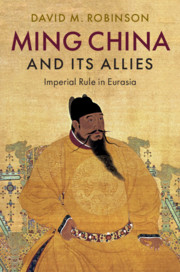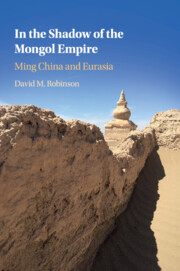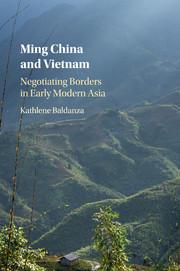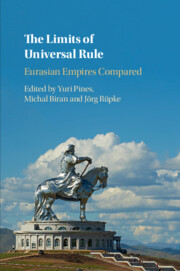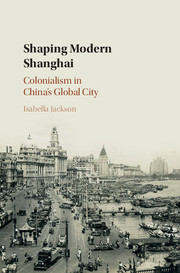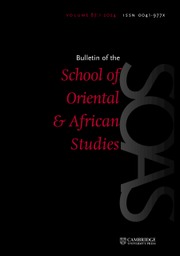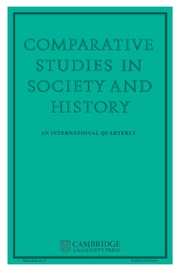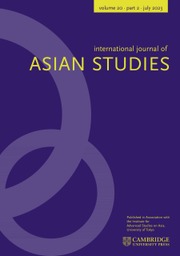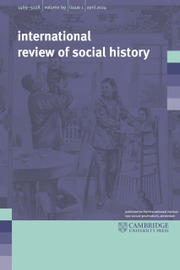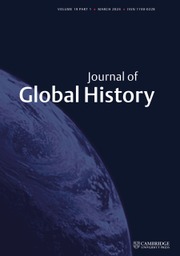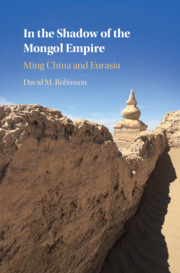Ming China and its Allies
Imperial Rule in Eurasia
- Author: David M. Robinson, Colgate University, New York
- Date Published: February 2020
- availability: Available
- format: Hardback
- isbn: 9781108489225
Hardback
Other available formats:
eBook
Looking for an inspection copy?
This title is not currently available for inspection. However, if you are interested in the title for your course we can consider offering an inspection copy. To register your interest please contact [email protected] providing details of the course you are teaching.
-
On the eve of the early modern age, Ming emperors ruled around one-quarter of the globe's population, the majority of the world's largest urban centers, the biggest standing army on the planet, and the day's most affluent economy. Far from being isolated, the Ming court was the greatest center of political patronage in East Eurasia, likely the world. Although the Ming throne might trumpet its superiority, it understood its need for allegiance from ruling elites in neighbouring regions. In this major new study, David M. Robinson explores Ming emperors' relations with the single most important category of Eurasian nobles: descendants of Ghengis Khan and their Mongol supporters. Exploring the international dimensions of Chinese rule, this revisionist but accessible account shows that even rulers such as the Ming emperor needed allies and were willing to pay for them.
Read more- Contextualizes China in global history, breaking out of 'isolated China' historical narrative
- Provides a full analysis of Chinese diplomacy and international leadership in the early modern period
- Provides compelling new ways of thinking about power and legitimacy in the pre-modern world
Reviews & endorsements
'Far from rejecting all things foreign, the early Ming emperors - each in his own way - continued both relations with Mongol successor regimes near and far, and the splendid and personal Mongol-style rule and diplomacy. Robinson sheds new light on the Ming court, the Yongle emperor, and the Tu Mu incident.' Sarah Schneewind, University of California, San Diego
See more reviews'David Robinson brilliantly explores the entanglements of dynastic succession in the aftermath of the demise of the Mongol Yuan dynasty. The book provides expert guidance and utterly novel insights as it unravels the intricacies of court and international politics. Drastically refashioning the common image of a dynasty that resurrected Chinese civilization after an age of foreign rule and barbarism, Robinson shows the early Ming emperors as savvy politicians who valued and used the Mongols, their erstwhile rulers, as allies and subjects. The striking originality of Robinson's interpretation of early Ming emperorship, and the exacting depth of its research, make this book a true gem of historical scholarship.' Nicola Di Cosmo, Institute for Advanced Study, New Jersey
'David Robinson's fascinating new book locates the Ming dynasty firmly in its full Eurasian context. Focusing on the early Ming relations with the Mongols - their subjects, rivals and allies - he illuminates both the early Ming emperors - their policies, personalities and concepts of rulership - and the post-Chinggisid world within which they operated. Meticulously researched, and stressing the Ming's Inner Asian identity, the book offers a new interpretation of China's place in the early modern world. A must for anyone interested in Late Imperial China, the legacy of the Mongol Empire, and early modern history.' Michal Biran, Hebrew University of Jerusalem
'… the book is a significant addition to the study of Chinese history as well as Mongolian history, and indeed Central Eurasian and World History … it is accessible to non-specialists … this study serves as a useful model for similar studies on other empires in world history.' Timothy May, Journal of Chinese Military History
'Robinson's new book breaks away from the old Ming-Mongol binaries prevalent in historical sources and historiography. this book makes significant scholarly contributions by telling a new story about Ming rulership and by opening up new possibilities in research on Eurasian connectivity and comparative empires.' Ying Zhang, China and Asia
Customer reviews
Not yet reviewed
Be the first to review
Review was not posted due to profanity
×Product details
- Date Published: February 2020
- format: Hardback
- isbn: 9781108489225
- length: 258 pages
- dimensions: 236 x 159 x 16 mm
- weight: 0.55kg
- availability: Available
Table of Contents
Introduction, 1. Zhu Di's march to power in a Chinggisid world
2. Search for control
3. Mongol nobles at the Ming court
4. Tumu crisis in a Eurasion context: struggle for the Chinggisid mantle
5. Tumu crisis (II) allies and commensurability
Conclusion.
Sorry, this resource is locked
Please register or sign in to request access. If you are having problems accessing these resources please email [email protected]
Register Sign in» Proceed
You are now leaving the Cambridge University Press website. Your eBook purchase and download will be completed by our partner www.ebooks.com. Please see the permission section of the www.ebooks.com catalogue page for details of the print & copy limits on our eBooks.
Continue ×Are you sure you want to delete your account?
This cannot be undone.
Thank you for your feedback which will help us improve our service.
If you requested a response, we will make sure to get back to you shortly.
×
